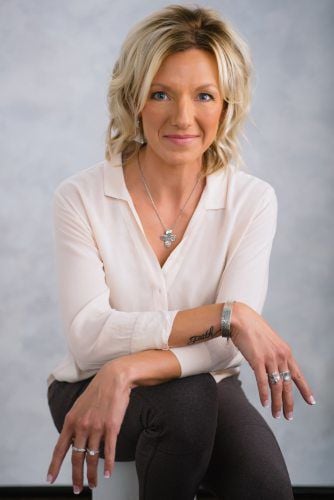Balance (noun)
Essential meaning of balance
1: the state of having your weight spread equally so that you do not fall.
2: the ability to move or to remain in a position without losing control or falling.
3: a state in which different things occur in equal or proper amounts or have an equal or proper amount of importance.
Many of us have a goal of finding “balance” in our lives.
Balance in mental, emotional, spiritual and physical health. Balance in home and work. But balance feels elusive, as we expect balance to mean that if we just work a little harder, everything will fall into place and then life will be easy.
To find true balance in life, though, we need to let go of our false beliefs. We need to do less, not more and simplify. Begin with these five steps.
Gain clarity on what you want
There are endless self-help books and other resources you can use to help you gain clarity on what is important to you, what your personal likes or dislikes are, and what you ultimately want in life. I have often found working one-on-one with a coach or therapist to be helpful for insight to these questions. Or, simply carve out a little time for journaling to explore your answers to these questions. Once you are clear on what you want, let go of what you don’t want.
Let go of busyness
In our culture, it tends to be a badge of honor. The busier we are, the more important we are or the more productive or successful we are. Often, the busier we are the less productive we are. We tend to feel hectic, stressed or exhausted. I often say, “Slow down to speed up,” meaning that by slowing down enough to recognize what we need to focus on, we can let go of distractions and have greater focus to be more productive with what really matters to us.
Set intentions
Intentions focus on what you want to create for yourself. They are positive and stated in the present. For example, “I intend to speak to myself with grace and compassion today.” Living in accordance with our intentions allows us to make healthier decisions throughout our day, keeping us focused on what is important to us.
Be clear and consistent in your boundaries
Setting healthy personal and professional boundaries, and communicating those boundaries clearly to others, creates space to maintain focus on those things you have chosen as most important to you. Get comfortable with saying, “no” to those things that are not in line with your intentions and what you want.
Simplify
Charles Bailey says it well. “Productivity is not about doing more and more and more, faster, faster, faster. It’s about doing the right things, deliberately and with intention.” Create your master “to-do” list based on what you want and your intentions. Separate your master list into three categories — a list for you, a list for home and family, and a list for professional ventures. Now circle the one thing on each list that you believe is most important for you to focus your time and energy on today.
Each day, create a list of what is most important to you, your intentions and the three items you want to focus your time and energy on. Set everything else to the side.
Let go of busyness and resist distractions, maintain healthy boundaries and repeat your intentions out loud to yourself frequently throughout the day. In breaking free from the bonds of busyness, productivity and constant striving for more you can find a greater sense of balance through simplicity.


